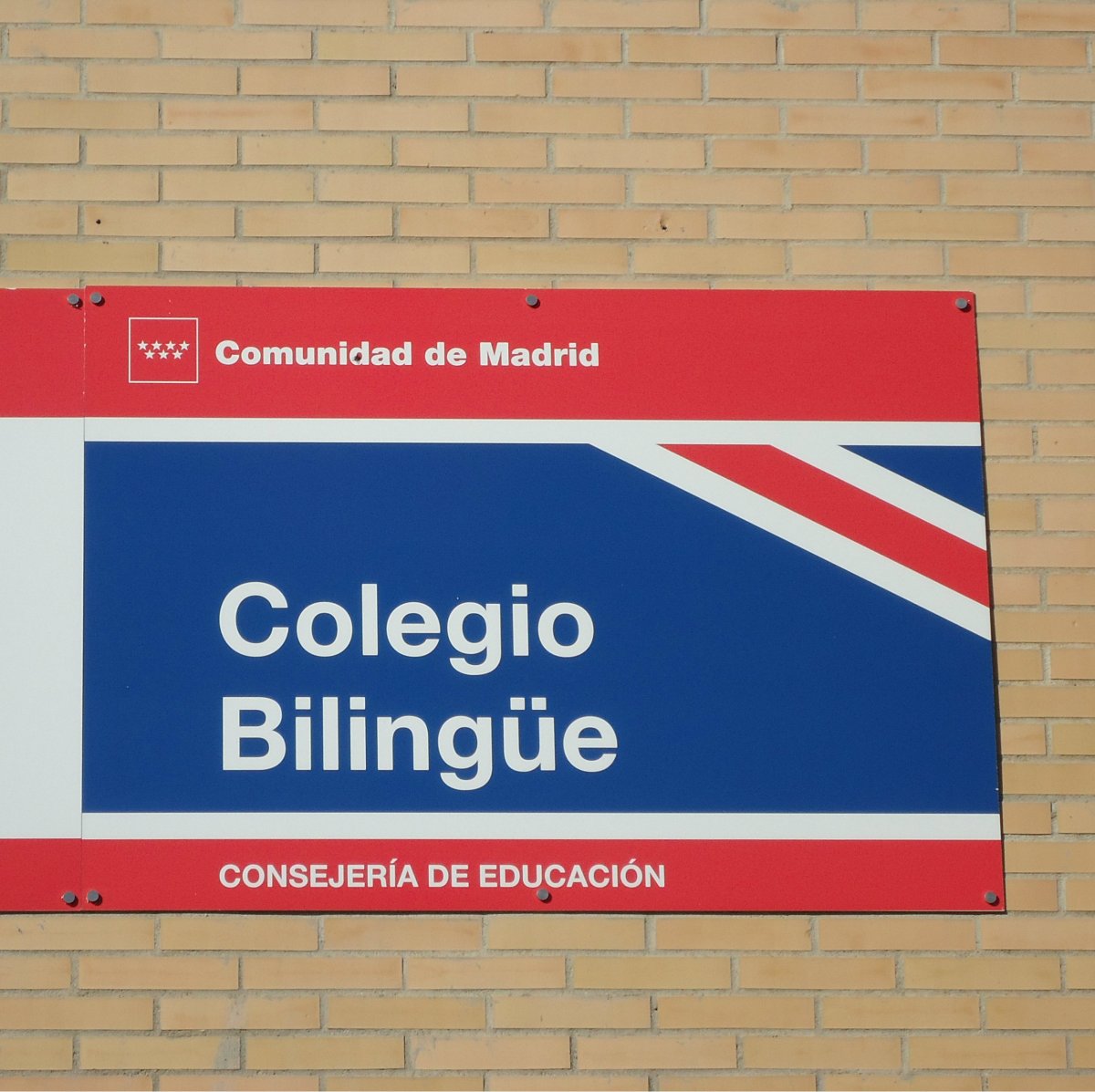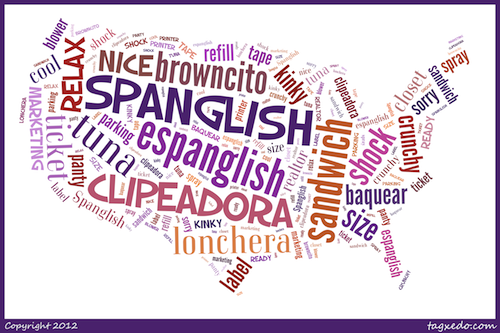martes, 28 de marzo de 2017
Ciao a tutti! Why do we study in english in our school?
Why?
There are cognitive, linguistic and affective reasons which justify the
early treatment of the foreign language in Primary Education. During this stage
the foreign language constitutes a special way of obtaining a wider
representation of reality, and favours the development of cognitive abilities,
the acquisition of adequate levels of auditive and phonologic competence and
avoids that affective factors which inhibit the students who are learning
appear.
How do we do it?
The Comunidad de Madrid (the
regional government) created the bilingual project to add more hours of class
in English in the public elementary schools, presumably to improve Spain’s lag
behind most other European countries in speaking English. Public schools in
Madrid wouldn’t just have your standard English language class; Science (sort
of a mix between science and social studies) would be in English, as well as
Art, Music, or Physical Education. The idea is that the children, starting in
first grade or primero de primaria, have at least a third of their classes in
English (or a minimum of nine hours). The program started in the school year
2004-05 with British teaching assistants in 26 schools, and in 2005-06 grew to
80 schools and added auxiliares (Assistants)
from across the pond as well. During the current 2006-07 academic year,
the number of bilingual schools climbed to 122, and for next year will rise to
147.
The assistant serves as the
school’s native speaker, collaborating with the bilingual project teachers, but
never with the full responsibility of teaching a class.
The Trinity exams are one of
the ways the Comunidad like to boast about its successes with the bilingual
project. These are 6- or 7-minute interviews conducted at varying levels by a
British examiner. Questions range from “Where are you from?” to “What does your
Dad do?” and “What do you do when you get up in the morning?” The Comunidad
requires both fourth graders and sixth graders to take the exam, and by
comparing the results (the younger children have a much higher rate of passing
than the older), they demonstrate how the bilingual project has succeeded in
getting these children to speak and understand English. And it’s true: the
sixth graders, who have only had English as a Foreign Language several hours
per week, know a lot less than the little ones.
Pros and cons of the bilingual program:
Advantages
1. It makes it easier for us to learn more languages.
The part of your brain that is responsible for learning new things and encouraging spatial growth can be stimulated further with bilingual education. Studies reveal that such training leads to increased brain growth and increased ability to handle multiple tasks at once. So, once you have opened your mind enough to learn a second language, it becomes even easier for you to learn another and so on. When you become bilingual, you will increase your ability to focus on learning new tasks, which also triggers increased concentration and makes multitasking much simpler.
The part of your brain that is responsible for learning new things and encouraging spatial growth can be stimulated further with bilingual education. Studies reveal that such training leads to increased brain growth and increased ability to handle multiple tasks at once. So, once you have opened your mind enough to learn a second language, it becomes even easier for you to learn another and so on. When you become bilingual, you will increase your ability to focus on learning new tasks, which also triggers increased concentration and makes multitasking much simpler.
The world is getting smaller every day, and children
who have the ability to communicate fluently with a variety of people and
cultures are the most likely to rise to the top in a world that is becoming
more global than anyone could have imagined.
2. It will be a necessary skill in the future.
As the minority-language-speaking populations continue to rise, children who have learned to speak multiple languages will be highly sought out on the job market. In certain states and communities in the US, for example, the Spanish-speaking population is outnumbering those who are speaking English. Also, the Chinese and Hindi populations are rising steadily. This means that children who are prepared to adapt to this change will be better-equipped to face the problems in the future, as opposed to those who only speak one language.
As the minority-language-speaking populations continue to rise, children who have learned to speak multiple languages will be highly sought out on the job market. In certain states and communities in the US, for example, the Spanish-speaking population is outnumbering those who are speaking English. Also, the Chinese and Hindi populations are rising steadily. This means that children who are prepared to adapt to this change will be better-equipped to face the problems in the future, as opposed to those who only speak one language.
3. It makes a better-rounded child.
While skeptics believe that bilingual education can confuse a young student, studies prove that it enhances the mind and provides child with a much brighter future, making it easier for him to understand and relate to other cultures. A child who is capable of grasping other languages can open up a larger world to himself and is much more likely to be worldly and cultured. He will be able to study abroad and gain more from his experience than those foreign students who are not capable of speaking the predominant language. Moreover, he will have access to a valuable gateway to positive interactions with other races, leading to rapid personal growth and skill development.
While skeptics believe that bilingual education can confuse a young student, studies prove that it enhances the mind and provides child with a much brighter future, making it easier for him to understand and relate to other cultures. A child who is capable of grasping other languages can open up a larger world to himself and is much more likely to be worldly and cultured. He will be able to study abroad and gain more from his experience than those foreign students who are not capable of speaking the predominant language. Moreover, he will have access to a valuable gateway to positive interactions with other races, leading to rapid personal growth and skill development.
4. It offers multiple personality benefits.
There are plenty of personality benefits children can gain from learning to speak multiple languages. Studies show that those who show the ability to handle such learning have increased their ability to process new sounds, particularly those who use separate languages regularly. These children are also far less likely to experience personality disorders, including anxiety. They are typically less lonely than their single-language-speaking counterparts. Generally put, they have higher levels of self-esteem.
There are plenty of personality benefits children can gain from learning to speak multiple languages. Studies show that those who show the ability to handle such learning have increased their ability to process new sounds, particularly those who use separate languages regularly. These children are also far less likely to experience personality disorders, including anxiety. They are typically less lonely than their single-language-speaking counterparts. Generally put, they have higher levels of self-esteem.
Cons
1. It poses difficulty for foreign language students
to assimilate easily.
One of the most frequent criticisms of bilingual education is that it causes foreign language students to avoid total assimilation into their local culture. After all, in order for us to fully adapt to our country’s current culture is making certain sacrifices, and one of these is our dominant language.
One of the most frequent criticisms of bilingual education is that it causes foreign language students to avoid total assimilation into their local culture. After all, in order for us to fully adapt to our country’s current culture is making certain sacrifices, and one of these is our dominant language.
It is stated that bilingual education can widen the
cultural gap, as opposed to bridging it. Thus, it becomes more difficult for
foreign language students to experience success in other school subjects, such
as science and math. To solve this issue, those who speak a minority language
should be thought to speak English, while also allowing them to hold onto their
native tongue and cultural traditions. Learning a second language should never
be an either/or proposition.
2. It reduces focus on a career.
When a child is obliged to spend much of his time learning a second language, he will be limited to develop skills he would need in other areas. Specializing in a particular area can stunt his overall development and can actually lead to a lack of well-rounded learning.
When a child is obliged to spend much of his time learning a second language, he will be limited to develop skills he would need in other areas. Specializing in a particular area can stunt his overall development and can actually lead to a lack of well-rounded learning.
Aside from this, teaching a child to learn a second
language can consume a great deal of time and can cause frustration for both
the teacher and the student alike. And if the child becomes frustrated with
learning, he might also act the same way towards other subjects. Remember that
some children respond well to bilingual education, while others don’t. So, it
is crucial to spot warning signs in them not to burn them out on learning
altogether and adversely affect their opportunities to reach their true
potential for their desired careers.
3. It causes lack of qualified teachers.
One prominent problem in bilingual education is the severe lack of qualified teachers to handle the subject. Quality bilingual education requires an expert, patient and firm teacher who have the time in his hands to take care of issues that may arise.
One prominent problem in bilingual education is the severe lack of qualified teachers to handle the subject. Quality bilingual education requires an expert, patient and firm teacher who have the time in his hands to take care of issues that may arise.
Unfortunately, these professionals are in very short
supply, and many of them are already busy teaching the usual subjects, ridding
them of the time needed to teach a second language. At a point in time when so
many of their capabilities are being stretched to the limit and schools are
struggling to fill the gap, the idea of taking skilled bilingual instructors
and assigning them to teach what they do best will not be something that is
universally supported.
4. It is quite expensive.
Schools are struggling to keep foreign language programs funded as is, and facilitating a dominant language program is far cheaper than educating minority language students. So, if a student does not really understand the language he is being taught, the budget allotted to such a program would be a complete waste.
Schools are struggling to keep foreign language programs funded as is, and facilitating a dominant language program is far cheaper than educating minority language students. So, if a student does not really understand the language he is being taught, the budget allotted to such a program would be a complete waste.
According to my personal
experience as Social and Natural Sciences teacher in a bilingual
school in Alcobendas, I could say that
my profession it’s hard and rewarding. All the teachers and assistants that take part
of the bilingual program work very hard in order to solve all the problems.
Through our experience we try to solve every program. We are not translators,
not scientist, only teachers who are trying our students to learn in the
easiest and more creative way.
miércoles, 8 de marzo de 2017
Funny songs
Some fun videos in order to revise the things that we've learned in Social Science:
If you like their songs click here
If you like their songs click here
Suscribirse a:
Comentarios (Atom)


